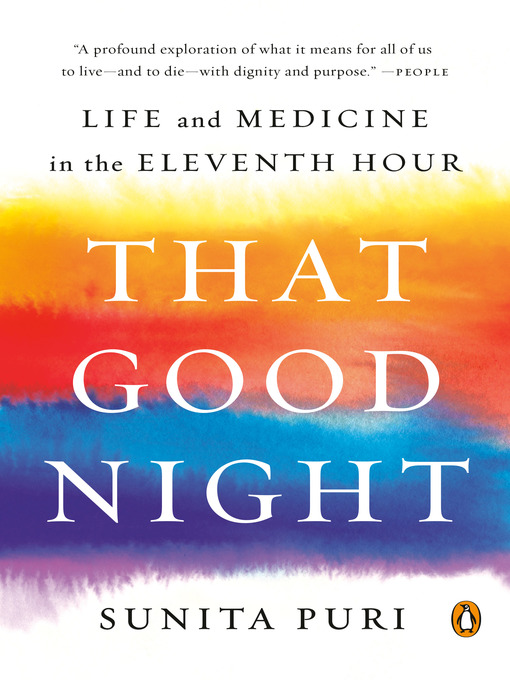- No wait, no problems
- What's new?
- Popular titles
- Check these out!
- Great Audiobooks for a Family Road Trip
- Audiobooks for the Whole Family
- See all audiobooks collections

“Visceral and lyrical.” —The Atlantic
As the American born daughter of immigrants, Dr. Sunita Puri knew from a young age that the gulf between her parents' experiences and her own was impossible to bridge, save for two elements: medicine and spirituality. Between days spent waiting for her mother, an anesthesiologist, to exit the OR, and evenings spent in conversation with her parents about their faith, Puri witnessed the tension between medicine's impulse to preserve life at all costs and a spiritual embrace of life's temporality. And it was that tension that eventually drew Puri, a passionate but unsatisfied medical student, to palliative medicine—a new specialty attempting to translate the border between medical intervention and quality-of-life care.
Interweaving evocative stories of Puri's family and the patients she cares for, That Good Night is a stunning meditation on impermanence and the role of medicine in helping us to live and die well, arming readers with information that will transform how we communicate with our doctors about what matters most to us.
-
Creators
-
Publisher
-
Release date
March 5, 2019 -
Formats
-
Kindle Book
-
OverDrive Read
- ISBN: 9780735223332
-
EPUB ebook
- ISBN: 9780735223332
- File size: 3328 KB
-
-
Accessibility
-
Languages
- English
-
Reviews

Loading
Formats
- Kindle Book
- OverDrive Read
- EPUB ebook
Languages
- English
Why is availability limited?
×Availability can change throughout the month based on the library's budget. You can still place a hold on the title, and your hold will be automatically filled as soon as the title is available again.
The Kindle Book format for this title is not supported on:
×Read-along ebook
×The OverDrive Read format of this ebook has professional narration that plays while you read in your browser. Learn more here.